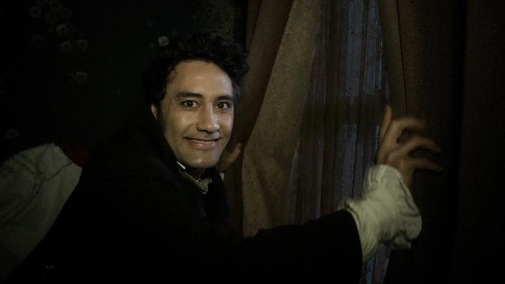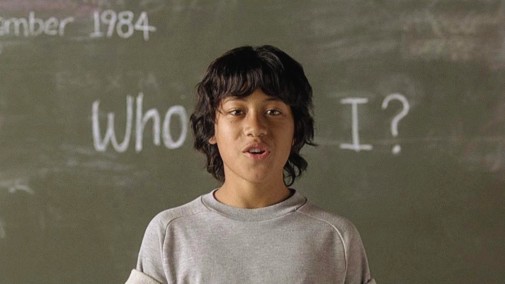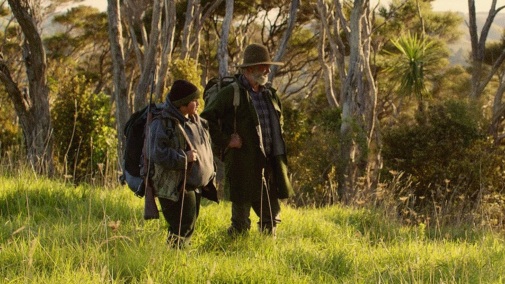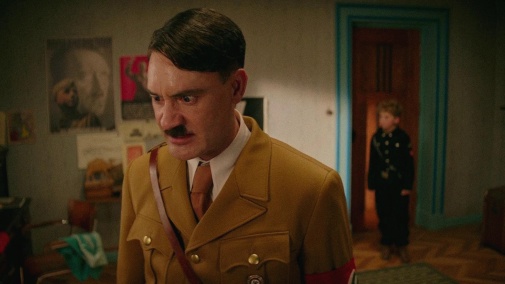
Oh, how the mighty have fallen. Once upon a time, the prospect of a new Taika Waititi movie was cause for celebration, with excitement erupting across cinephiles everywhere. Now, however, when his oft-delayed Next Goal Wins finally makes it to theaters, the occasion is met with general disinterest. Sure, some critics have praised the thing, but the excitement doesn't seem there. Not even the inspirational true story or the return of Michael Fassbender to big studio fare is enough to provoke more than a shrug. As far as awards go, Oscar hopes are nowhere to be found unless the season suffers some severe transformations.
When did the consensus about the Kiwi director curdle into indifference on the verge of dislike? Well…
Long before he won an Oscar for the JoJo Rabbit screenplay, Taika Waititi was nominated with one of his early shorts. Two Cars, One Night signaled the young director's fledgling interest in the negotiation of sincerity with a twist, playing up the emotional pathos of his work while grasping at avenues for comedy. It also, crucially, focused on kids, as if announcing to the world how much childlike innocence and wonder would come to characterize many of Waititi's best efforts. In 2005, two years after that lauded short, he'd hit upon another comedic masterstroke with the What We Do in the Shadows short, and in 2007, he directed his first feature in Eagle vs Shark, starring frequent collaborator and longtime friend Jemaine Clement.

The path was set for a meteoric rise as each of Waititi's ensuing directorial efforts received more international attention from critics and cinephiles alike. 2010's Boy was the first feature breakthrough, its waver between humor and melancholy a delicate miracle that Waititi pulled off with aplomb, even if his aesthetic idioms were still in development. Then came the What We Do in the Shadows film of 2014, still one of the 21st century's best vampire movies and a good candidate for funniest horror comedy. Simply put, it's a masterful gag, managing to make the mockumentary format sing while paying homage to the genre's history, poking at its iconography, and proposing its own off-beat mythos amid the deadpan.

Still, if asked to name the best Taika Waititi flick, I'd have to go with Hunt for the Wilderpeople, its heartbreaking alchemy so volatile that the surges of sentiment never feel unearned or sugary. Morbidity lurks at the margins, souring the sweetness or maybe just giving it a necessary edge. At the same time, the central characters' grief is the foundation for how affecting the picture ends up being. Sam Neill, in particular, has never been better, and Rachel House is nearly as excellent, as is young Julian Dennison. After such a triumph, Waititi deserved his blank checks and creative freedom, enough space to spread his wings and take his cinema to new heights. How sad that he decided to clip those feathery appendages right away.
Following Hunt for the Wilderpeople, the MCU came a-calling, and Waititi directed Thor: Ragnarok as a necessary aesthetic and tonal departure for the franchise. And yet, this triumph severed ties with his indie origins and started to expose the limits inherent to the director's approach. It also didn't help that he became an instant big name, garnering more fame than most director-screenwriters to the point he became the rare celebrity filmmaker. Teetering on the edge of a mighty peak, there were still new heights to discover, but a fall was just as likely. Depending on your opinion of Jojo Rabbit, you may see it as a step in the right direction or the beginning of the end. For me, it was a plunge into the abyss.

Indeed, watching Taika Waititi sail to that Best Adapted Screenplay victory soured many people on him, planting the seeds of discontent that came to bloom as the pandemic rocked the film industry and the director's public persona grew overbearing. His big return, Thor: Love and Thunder, is a miserable dreck whose every minute reveals a lack of focus behind the camera if not outright laziness. And so, even as Waititi's TV ventures keep getting praise, his big screen output now lives in the shadow of Love & Thunder's infamy. Unless there's a drastic change in the near future, it's difficult to imagine him returning to the greatness of Wilderpeople. At the very least, Next Goal Wins isn't that comeback, and his future projects don't seem that promising either. Still, hope is everlasting.

What's your opinion on Taika Waititi, and has it changed throughout his career, from indie darling to big studio man?